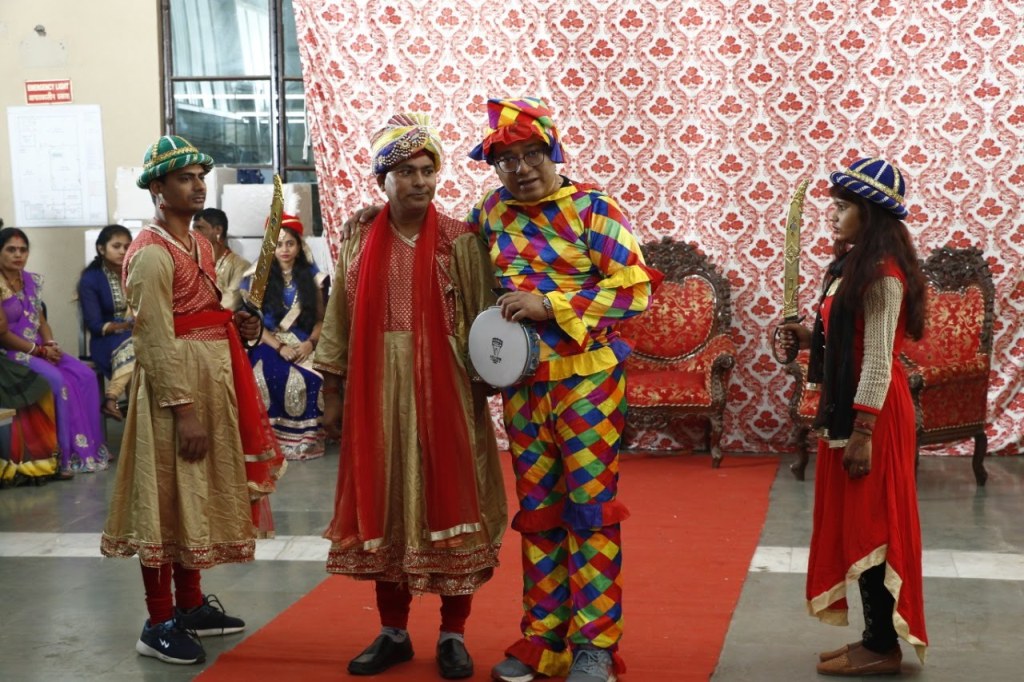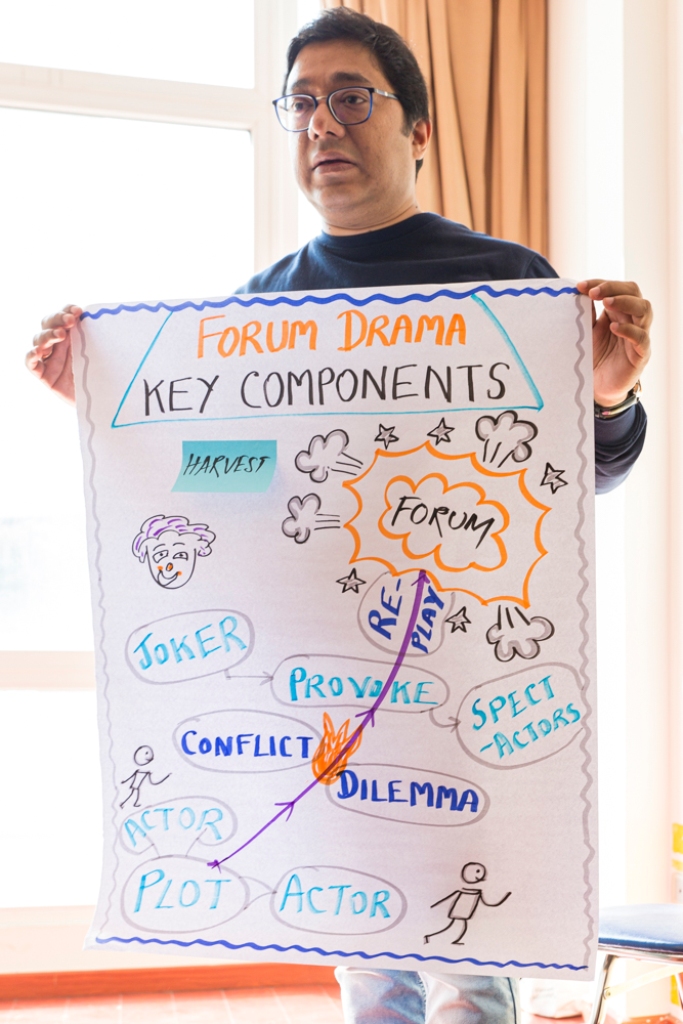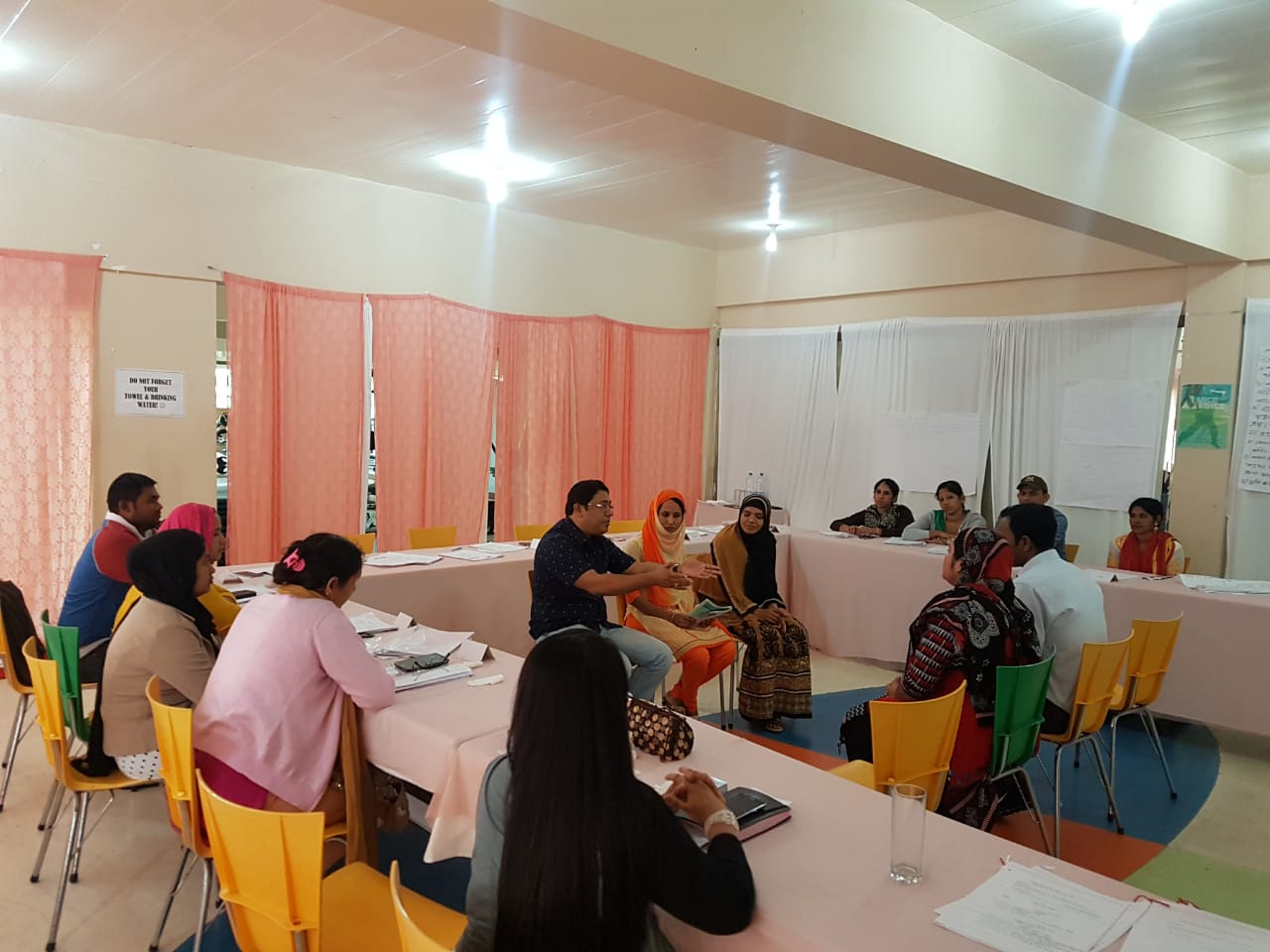Social Dialogue, Conflict Resolution & Forum Theatre
THE BUSINESS CASE FOR SOCIAL DIALOGUE
- Social dialogue has the potential to serve as a productive input to enterprises and contribute to inclusive growth. While some associate social dialogue with increased costs, research has demonstrated that in many instances social dialogue can be a strong driver of stability, equity, productivity and sustainable business growth.
- The process of social dialogue in itself embodies the basic democratic principle that people affected by decisions should have a voice in the decision-making process. Social dialogue has many forms and collective bargaining is at its heart.
- Research shows that social dialogue, including collective bargaining, has the potential to contribute to business performance while at the same time supporting decent work and a more equitable work environment. – ILO
Tailored to the experiences and backgrounds of the employer & organisations taking part, we help the organizations to raise their profile within market and increase their knowledge of social dialogue outcomes. It is our flagship programme whose ultimate goal is to promote a dynamic, inclusive and reinforced social dialogue for workers, officials, trade unions, and civil society organizations on core human rights topics.
We at Paradigm Shift are passionate about tackling the heavy costs of conflict across the community. Our model of mediation is highly regarded for its capacity to effectively support human as a whole and relationship based high conflict situations.
Why Forum Theatre?

Forum theatre is a type of theatre created by the innovative and influential practitioner Augusto Boal as part of what he calls his “Theatre of the Oppressed.” Boal created Forum theatre as a forum for teaching people how to change their world. While practicing earlier in his career, Boal would apply ‘simultaneous dramaturgy’. In this process the actors or audience members could stop a performance, often a short scene in which a character was being oppressed in some way. The audience would suggest different actions for the actors to carry out on-stage in an attempt to change the outcome of what they were seeing. This was an attempt to undo the traditional actor partition and bring audience members into the performance, to have an input into the dramatic action they were watching.
Source: http://en.wikipedia.org/wiki/Forum_theatre
How it works?
· Forum play presents a problem, not a solution. It does not preach. It does not judge. It invites spectators to participate in the performance - not through suggestions, advice or discussion, but by replacing one of the characters in the play, and 'acting' in his/her place- that is, by becoming spect-actors. They are not 'acting' in the sense of 'performing', but simply 'taking action' as they do in real life. Forum is also an opportunity for people to try out strategies that they may not get an opportunity to try in real life- thus it serves as a rehearsal, and with none of the risks of real life action- it's all happening in a play!
· The raw materials are concrete experiences of the audience. One goal is to make mechanisms visible, alternatives or behavioural patterns. The not spoken might come to the surface and object of a discussion. In further steps the participants are allowed to make experiments, they can try out different behavioural alternatives in the save space of the theatre.

Forum Theatre & Conflict – creating greater good
- Creating greater good out of conflicts through forum.Forum createsproductive conflict; which is defined as “an open exchange of conflicting or differing ideas in which parties feel equally heard, respected, and unafraid to voice dissenting opinions for the purpose of reaching a mutually comfortable resolution.”
- A conflict that is “transformed” can have numerous benefits. In fact, all social change stems from conflict. Without conflict, our society would not evolve, injustices would never be called into question, and relations would remain frozen. Conflicts can create progress, dialogue, better understanding of each other and even greater trust and intimacy. (Participatory Theatre for Conflict Transformation)
- Our interventions are solution-focused as we seek out innovative ways to resolve conflicts that previously seemed stuck. To achieve this, we have developed a creative and participatory approach to address organisational complexities, which creates a sustainable ambience for the organisation.
- Our forum interventions are imaginatively tailored to allow spectators to envision their future, overcome obstacles, develop relationships and absorb knowledge.
- From different industrial setting we have realised that the assumption of Boal’s Forum Theatre techniques are appropriate instruments of transformation and change. The philosophical thrust of forum theatre improves the existing process of resource utilization and the challenges the strategies of the present system for sustainable results.
